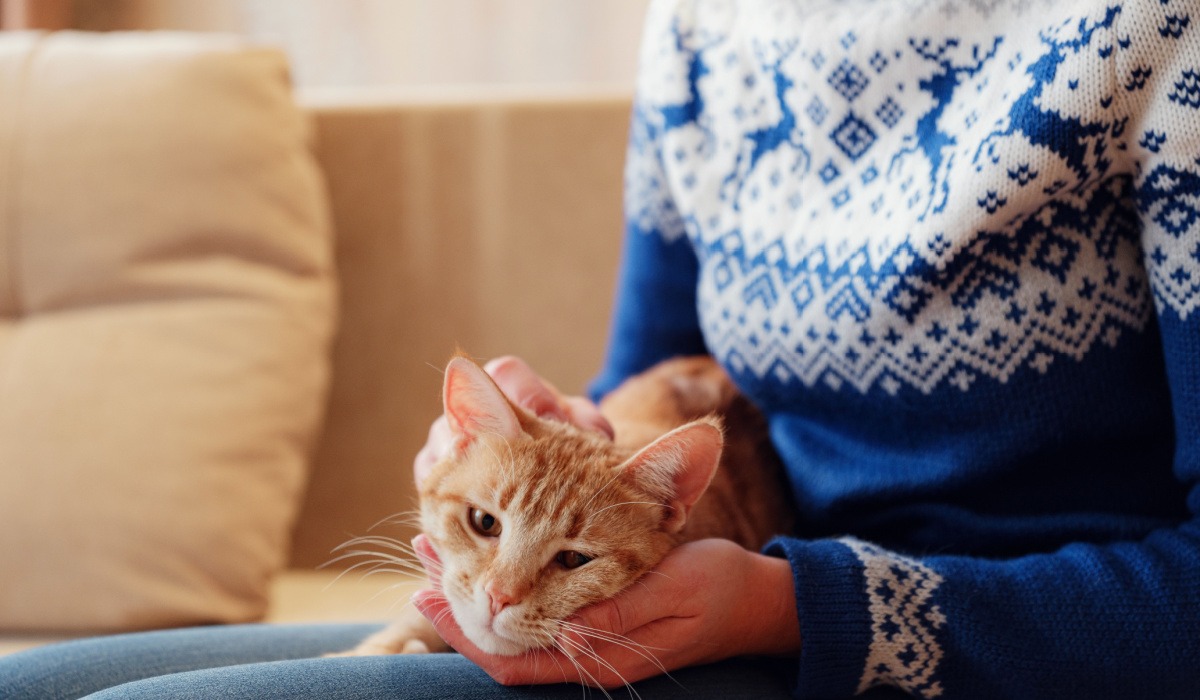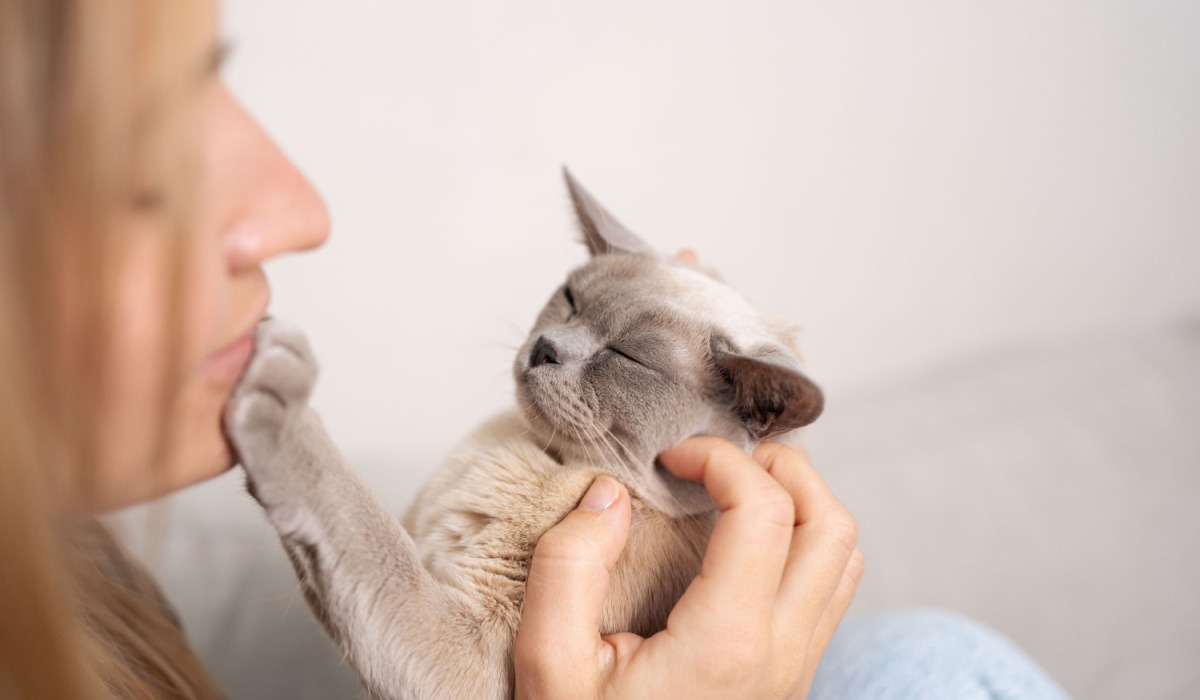How do we know what that cats can sense the emotions of their owners?
No matter how loving, or clever, your feline is, they’re not going to understand if you start telling them why you’re feeling on top of the world, or how you’ve ended up down in the dumps.
We’re not saying, don’t talk to your cats – we do all the time. But it’s not through words they’re able to understand our emotions; it’s more through our actions.
We’ll come on to the ways our cats are able to sense our emotions in the next section, but first let’s deal with the ‘how’ we know they can.
You may have noticed whenever you’re feeling sad or depressed, your furry best friend moves a little closer to you. Some cats may even rub themselves up against their pet parent, or offer an empathetic purr, when they can sense they’re out of sorts.
Similarly, a pet parent who is feeling angry or frustrated may find they are being given a little more space than usual.
Our moods can have a direct effect on the behaviour exhibited by our felines, which tells us they are more in tune with us than we may ever be able to understand.
Now, some cats are going to be more emotionally perceptive than others. Just like with humans, cats have different personalities. And while one may come over to the sofa and snuggle up to you when you’re feeling down, another may only offer up a passing glance as they saunter on over to their food bowl.



